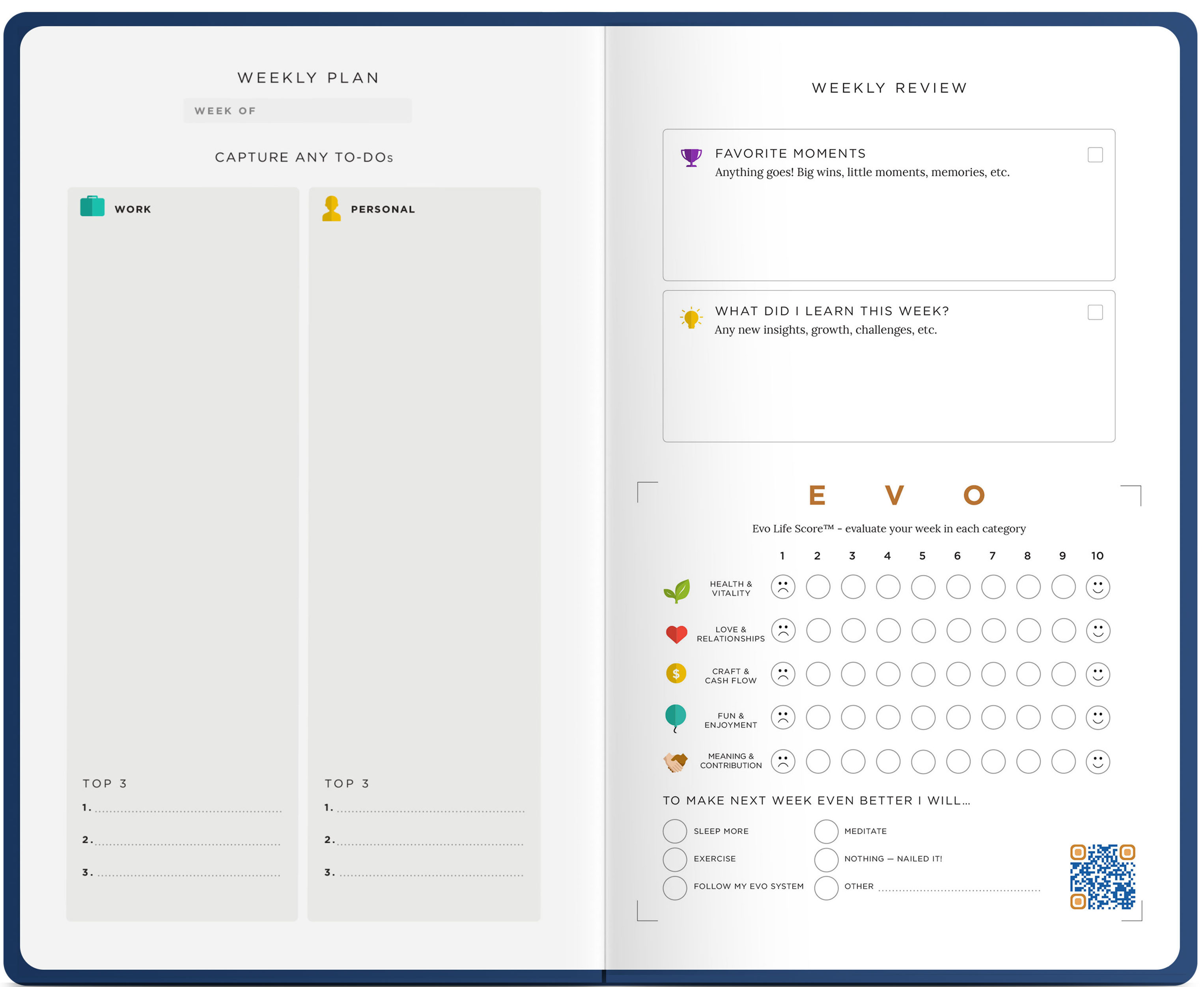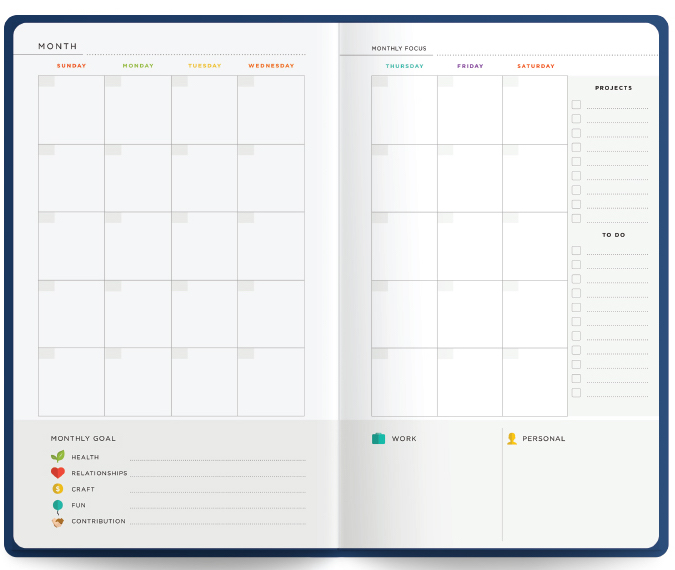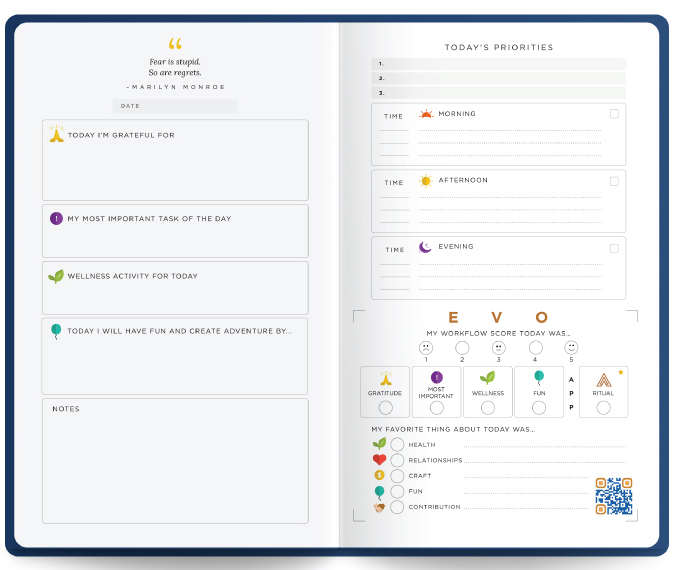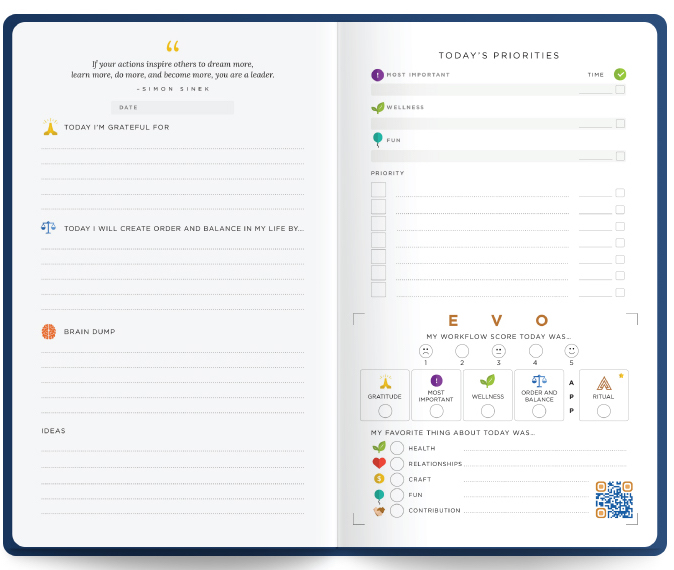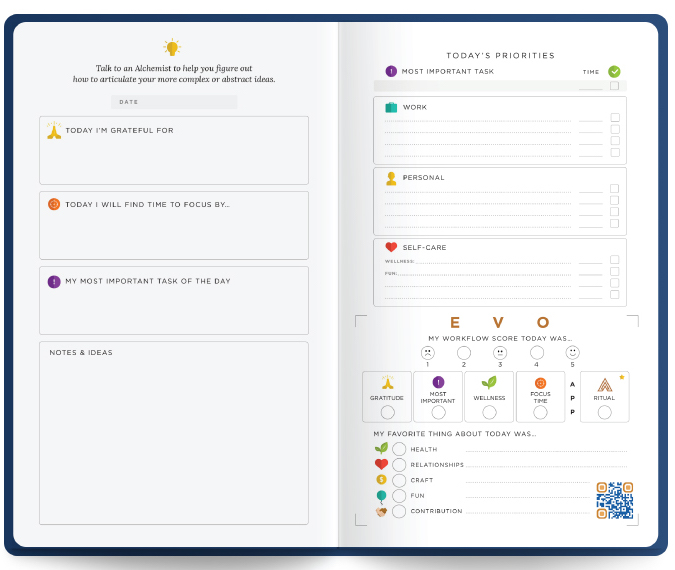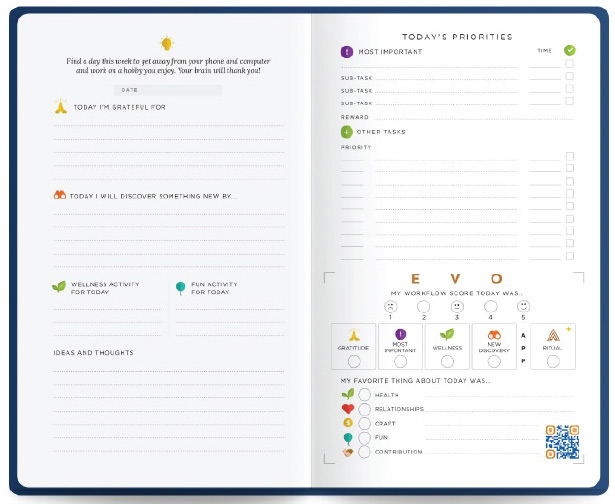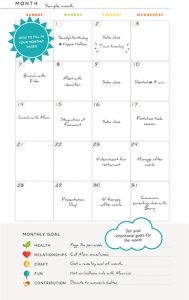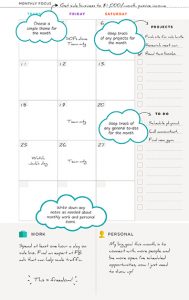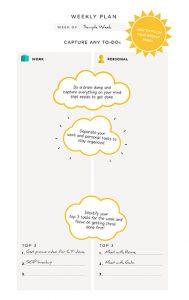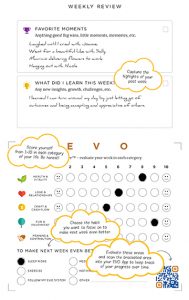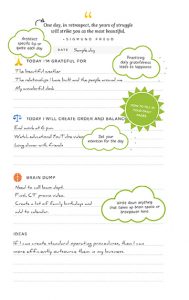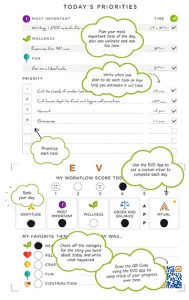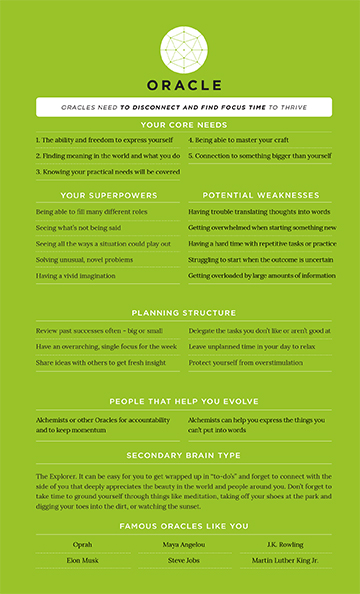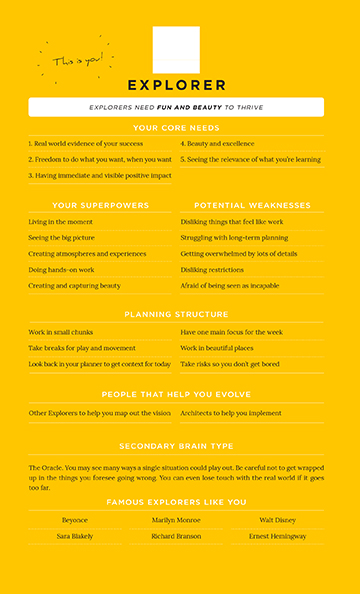BLOG
a
Focus Strategies - An Interview With Chad Mureta & Les Hewitt
By Chad Mureta and Les Hewitt
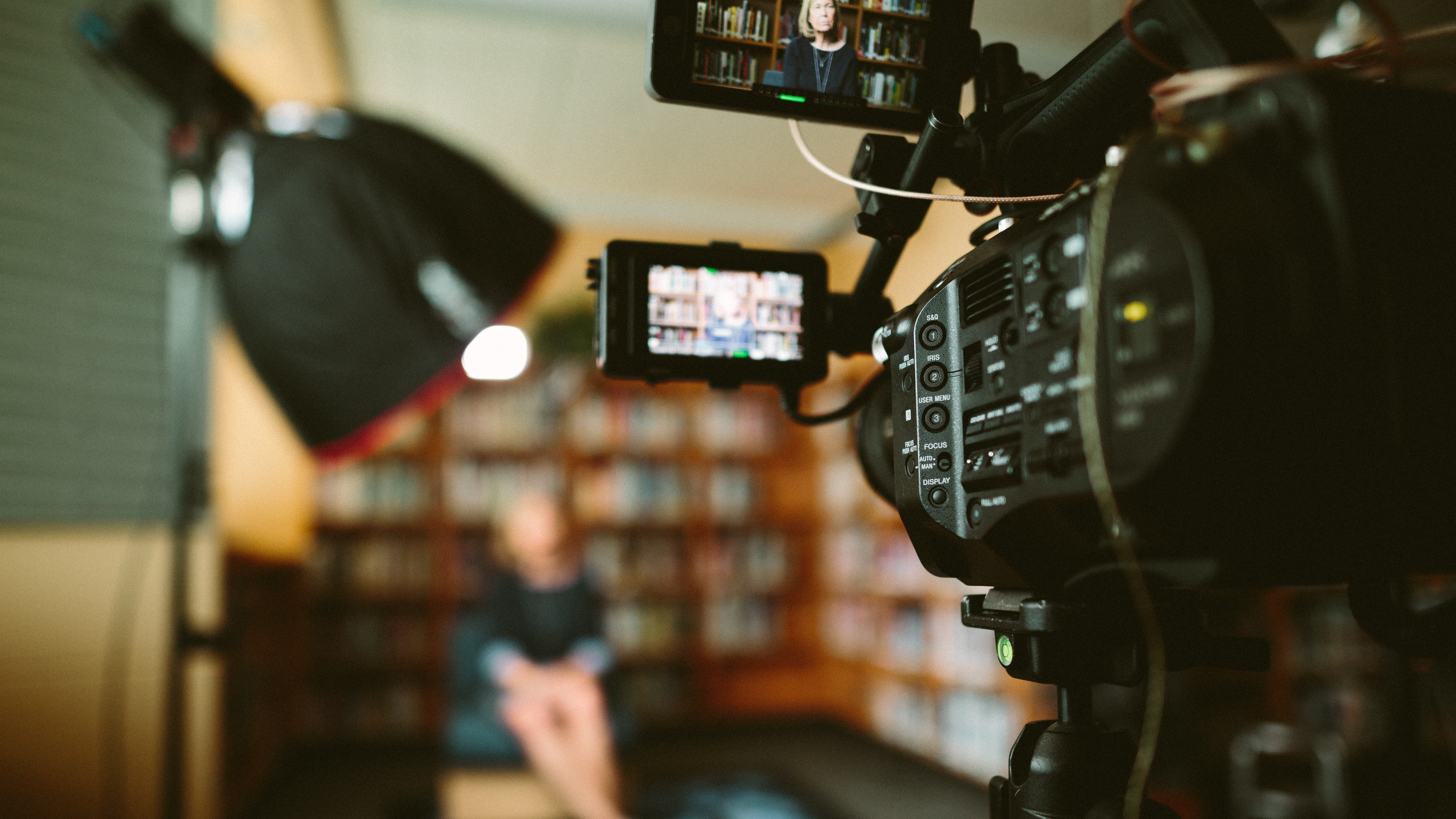
Photo by Sam McGhee on Unsplash
This interview transcript has been formatted and edited for clarity.
Chad
Welcome everybody, welcome. This is an exciting day today, EVO Collective, because we have an exciting guest, who is really a friend (I would even say family member at this point) and I’m really excited to have him on today.
We have a major area of focus each month, which for May is getting into Focus. We ask the important questions like: How do we actually focus?
I want to introduce the most impressive expert on focus and productivity and flow that I know of. So Mr. Les Hewitt, welcome, welcome, welcome!
Les
Well, thank you for that lovely introduction. That’s way over the top, but I’ll take it, I’ll take it.
Chad
Well, I think you should. So just a little bit about Les: Yes he has written a book, number one New York Times bestseller, called Power of Focus, which a lot of you have probably heard of, and if you haven’t, please go and read it.
But he also has something that a lot of people don’t have, which is experience. We were talking about this just the other day, in fact. He has over 30 years of experience. You’ve done incredible things in your career, Les. I’m kind of curious how you started on this path to focus and helping people really concentrate on the right things. When did this start for you—becoming an expert in focus?
Les
Well, I was originally from Belfast and Northern Ireland… Still got a little o’ that accent, I suppose. But when I left school, Chad, I didn’t have a clue what I wanted to do. I really didn’t. And my dad said we couldn’t afford university or college education. So, he told me “you gotta go get a job.”
I did nothing for a few weeks. Then he came in one day and said, “I’ve got an interview for you at the hospital where I work, the Belfast City Hospital.” I went in and I did the interview, and basically ended up starting my career as a medical lab technologist specializing in hematology, which is all about blood.
And basically it was the worst decision I had made in my life, probably at that time. And a big one! To take a job like that, because my worst subjects in high school were math and science, and that’s what that job was all about. I struggle there, I did the exams.
I finally qualified, and actually stayed there eight years. And then I got a big opportunity with that job to move to Calgary, in Canada, where I actually ran the hematology department in the biggest hospital in Calgary! I was so out of my depth it was ridiculous.
What happened after that, was I met a man called Jim Rohn, who many people will know is one of the greatest personal development and professional development trainers in the world. Sadly, he passed away several years ago.
But he became a mentor for me, and I actually started my own training company, called Achievers Canada. I brought Jim Rohn in every year because he was the master. I just got super excited about learning everything I could, and sort of modeling him in any sort of way that I could. Although you know, I’ve never gotten close to his expertise. But then it went on from there. I’ve had several businesses over the years, and they’re all in the training industry.
Chad
Got it. I guess you’ve decided to go really, really deep on this. That’s one thing about the luxury of having you on—the luxury of being able to have you within EVO as an ambassador. It’s like we’re coming back to what is actually, really important.
I think you talked a lot about this topic of “awareness” a lot, right? Like, before you can really do anything to focus, there has to be some type of awareness of what you’re actually doing.
So, how do you actually define “awareness”? Like, in the context of being successful in your life—from business, to how you feel?
Les
Well, I can just give you a good example of a lack of awareness.
That was my situation when I left school. But I think “awareness” is really a combination of knowledge and experience, which helps you make good decisions in any area of your life.
And you can’t just have that all at once, obviously. Every year we get (hopefully) more knowledge and experience, and we make better choices… But we’ll also make bad choices.
And the more aware you become, the more you should be making better choices, and things should be getting better for you.
Another way to look at this in a more basic way, if you’re looking in the context of business, for example… The very simple question you should ask yourself regularly is: “what’s working and what isn’t working?” And really reflect on on those answers.
I find, Chad, that in the busy world of business, particularly entrepreneurs and young company owners, they’re usually going 100 miles an hour. They really don’t plan or schedule any time to think.
One of the strategies I get to right away with my own coaching clients (I coach a small number of business owners)… What I say to them is this: “create a reflective hour every week.” You put this in your calendar as a meeting, “I’m having a meeting on Friday afternoon, from two o’clock to three o’clock, who’s the meeting for? Nobody, it’s for myself!”
The only purpose of that meeting is to think. And that’s tough for people who are going 100 miles an hour all the time. But if you do that regularly—get into the habit of scheduling an hour to think and reflect and ask yourself a few questions. And get a simple notepad—you don’t need technology—just sit down.
I would say, ask yourself three questions at the end of the week. You know, “what’s worked well this week? What do I need to pay more attention to? Who can help me the most moving forward?” I mean, whatever questions come up for you.
But if you do that on a regular basis, your awareness and clarity are going to go way up. And if you read about people like Bill Gates and Branson, they think a lot. They’re not running 100 miles an hour all the time. Other people do that for them.
As business owners and entrepreneurs, I think that’s one of the simplest, most valuable things you can do to heighten your awareness.
Chad
I love that. So it’s like, make it a ritual and schedule it in there where it doesn’t move because, obviously, life comes up… And it’s really easy to not do these things.
What you’re saying is, this is the most important piece of your life: getting this awareness?
Les
Well, it’s a big part. And you know, you need to make it a priority on your calendar. That’s why you put it on the calendar, you know? It’s a special meeting, and it’s a priority.
So don’t just shift it at the slightest little thing that comes along. It needs to stay on the calendar. And as I say, “focus, follow through, and finish,” whatever it is that you’re supposed to be doing.
Chad
Yeah, I love that. I guess if somebody you know goes ahead and says they miss it, they’re probably like—I know I’ve done this in the past—if you miss it, just make sure you do it as soon as you possibly can.
And, typically for me, I do this on Sundays, because it’s my best time to reflect and to plan. And to really get that baked into EVO. Yeah, that makes a lot of sense.
I guess along those lines, you know, of awareness… I feel like a lot of people—I’m sure you see this too—a lot of people right now are super uncertain.
You know, obviously, we’ve got… Everything that’s going on in the world. Now, that stuff doesn’t stop, we have no control over that.
But in general, in talking to my 22-year-old brother, and talking to a friend that’s 55—talking to all different age groups… It seems like the common theme is uncertainty, and this inability to make decisions and create what they want.
So, how do you talk to somebody that is uncertain and unclear about their future—where they’re going? Instead of just being passive, like, oh, here’s another day gone away… Which a lot of people, unfortunately, are doing right now.
How do you stop them and say, “No, there’s a better path”?
Les
Yeah, well, there is. And that’s an excellent question. It’s a big question. I agree totally with you.
I see a lot of people, all ages, that are very uncertain and anxious about the future, because they really don’t know what direction to take. I look at life as if it’s a movie. I love movies.
When you go to a movie, you’re watching a story unfold. And it could be a big drama with lots of action. Or it could be a comedy with lots of laughs, and you walk out feeling great. Or it could be something more somber and it could bring a tear to your eye. But every movie is a story.
And your life really is a story. It doesn’t matter what age you are, if you’re 20, you’ve got 20 years worth of story. If you’re 90, you’ve got—wow—you’ve got a fantastically long story. The way I look at it is you are the director of this movie called your life. So you’re not only the director, which is a very important role, obviously.
But you’re also the screenwriter. You get to write the script about a lot of the way your life can turn out, or not.
And the other big part, which can be a lot of fun, is you’re also the leading actor in this movie called your life.
And what I’ve done, you know Andrew is my son, well years ago, we brainstorm this idea. And we come up with an actual life strategy.
So this is the very first thing I do when I have a new coaching client. I’ll take a client, who’s a business owner, and I work with them for a year.
The very first thing we do before we do anything else—no strategies about improving the business and everything else—is creating this thing called Your Life Movie. Basically, it’s a simple slideshow.
Actually, about two hours ago, I just had a look at mine. Mine’s eight minutes long at the moment. What I’ve done is split it up in the different life categories. I keep it simple. I’ve got three life categories:
One’s called “For Benefit Business;” that’s my business. And the second one is Personal— there are lots of layers like health, and different things about relationships under there. And the last one is Prosperity—which includes contribution, and lots of other things.
So I’ve just got three categories, but you could put as many as you want in there. And then you pick these very powerful statements about what you want to see happen in the next three or five years. Those are the two windows you can do—a 3-year one or a 5-year one.
And when you’ve got your statements together… I don’t have time to go into all the details here. But when you’ve done that, then you go and search for pictures that are totally in alignment with your statements. And when you look at those pictures, they will actually inspire you.
Maybe you want to travel, for example. It’s not hard to get pictures of where I want to go—say Paris. You put that up there, along with a statement that that indicates that you want to go there. When you’ve done all that, then you add one more thing. Which I think is far better than the old, traditional goal setting—you add music on top of it. You select music that really energizes you really inspires you.
My movie, as I call it, this slideshow, is eight minutes long at the moment. I put the headset on to watch it, because I think when you’ve got the music coming through the headset, it’s far more impactful.
I stand up and I have this playing on my laptop… I stand up by three or four feet back, and I turn up the volume, as loud as I can get it, into my headset. And I just watch that and I rock with the music and I really embrace everything that’s on that screen.
Now, you know a lot about visualization, and you know, every athlete in the world at a good level, they’re visualizing what they want. This is helpful for really getting clear about what you want in life, as well as what you don’t want in life. I wish I had more time to go into detail…
The stories I could tell you about people who put their movies together, and how their life absolutely transforms… They get totally energized. You get excited about it. And every time that you check something off, like a goal and you say, “oh, I’ve done that! I’ve done that!”
Like Andrew and I went to England last year, they have a big sporting week, every year. We love soccer. Well, we went to some of the big games there and had a fantastic time. Great experience—now a checkmark against that.
Then you fill it with something new… You know, you can keep it there for a little while, enjoy it, and then you replace it with something else. By doing this, you could actually continue to run and edit this movie your entire life if you wanted to.
It’s a really powerful way to get clear and to get energized and excited about the future.
Chad
Wow, yeah, I absolutely love that. That’s incredible. I know how important that is to do ,so if you’re listening to this, make sure you do some version of this, because it’ll radically shift your life.
So now we have clarity. Now I know what I want, but how do I get what I want? Am I just sitting there, you know, visualizing it?
Obviously we want to make sure we’re focusing during a specific focus time. But how much time is that? You know, how much time do I set towards manifesting or creating my dreams from this movie board?
How does that work?
Les
Well, obviously, don’t just sit in, fold your arms, and wait for your movie and everything to drop out of the sky. It doesn’t work like that. My approach with my clients is to first get their movie done, and we don’t do anything until it’s done. Watch it for, say, 30 days in a row.
First thing in the morning is a great time to watch it so you won’t forget later. Do this 30 days in a row. And when you’ve done that, you’re going to be so conscious, so aware of what you want.
The next thing, of course, is, “how do I make it happen?” And that’s where the plan comes in. You need an action plan. You need a strategy that will take the most important things in that movie, and turn them into reality.
And that’s why we say three years or five years, you pick the window. Those are reasonable timelines to plan. You can do a one year movie if you want. But you’ve got to put a strategy together and say, “all right, how am I going to make this happen? What do I need to happen in my business? What do I need financially? What are the types of people I need to connect with?” And on and on and on.
The next thing I do with my clients is that we create that strategy. And then you’ve got to be accountable for executing, and of course, there’s nothing magic about that. You just gotta roll your sleeves up and get to work. But if you’re energized and excited about the future that you’re watching, you’re far more likely to make that happen.
Chad
Yeah, that makes sense. That energy carries you, because you’re excited about it. You have a vision, and you have clarity. So now you just have to follow through.
Les
Yes, and you also get some momentum. You know, once you start checking things off, it creates confidence—an inner confidence that maybe you didn’t have before. And it also creates momentum.
And momentum is really important when you want to see results. But once you start, you get into a flow after a while, and it’s just really exciting and energizing.
Chad
Beautiful, beautiful. So for the person that’s listening to this, saying, “I have ADD, I don’t know how to focus.” What would you say to somebody who really has all this stuff going on? Even though they know their path, it’s really hard for them to make a dent into something. How does this person focus? What would you recommend?
Les
Well, that’s a lot of self-discipline and awareness. I mean, if you allow yourself to be distracted and ADD is a factor, that that’s a bigger challenge.
Chad
Right.
Les
But, you know, what awareness and clarity, absolutely, that’s the preamp to this.
When you actually get into doing the work—and that’s a whole other session we could get into just by talking about focus strategies.
But basically, it’s taking a look at: what do I do every day? What do I do every week? And what are my strengths?
And you’ve really got to simplify things to avoid distractions, avoid interruptions, and become self aware. And if you’ve got people around you, you get them to help you with that.
You know, again, it’s a big topic, Chad, I think we could probably do another recording on that. There are so many strategies around focus, but you know, the most basic one is to stop trying to do too much, and be aware of how easily you get distracted.
And really, it requires focus time, where you start your week by designing your week… I wrote a little article about that for you guys the other day. And if you read that, it gives you some real detail in there.
But that comes right back to awareness. Again, be aware that you’re being distracted at a certain point, and be able to shut that off as fast as possible. Really it’s getting into the habit of saying, “I’m going to do one thing at a time. I’m going to spend 20 minutes doing this, and I’m not going to do anything else.”
And these rituals that start to happen, they become habits. They become ingrained, and it takes work. It takes self-discipline, it takes awareness, takes clarity, but you can do it.
I work with a lot of very fast-paced entrepreneurs. They’re always going, and one of the biggest issues is just what you’re talking about, “how do I stop?” Another thing is to remember to take a break.
I’m very big on taking breaks regularly so that you get time to re-energize, go have some fun, don’t let the business become a slave, or you a slave to it. We need some of that balance, you know, at least one full day off a week.
I tell all my clients, again, they’re in control of their business, because they run the business. And if you’re not taking six weeks off a year, you’re doing yourself a disservice. And by the way, you make far more money when you take regular breaks, because you can come back, refreshed, re-energized, and ready to go again.
And if anybody says different, sorry, you’re wrong.
Chad
[Laughing] I love it. Yeah, one thing that I’ve learned just from being around you is just that. It’s incredible how, no matter what, you have to create that time. And you have to actually focus on that one thing.
I know every time we talk, you’re like, “Hey, what is this? What is the one thing?” You find out exactly what’s going on, and then you cut through all the noise, and we find out what is the one thing that I actually need to make progress on to move everything forward. It’s amazing how, when you’re like, “Hey, have you gone on a vacation? Have you slowed down? Have you taken a break?” Like, you don’t have to work this hard, or do all these things…
Because what I’ve learned is if you actually just file down to only the things you have to do, like 80% of the stuff that you’ve been doing, or are caught up in… It all actually goes away. So by cutting out all those things, not only do you have more time, but you’re actually a lot more effective in moving forward.
Les
Yeah, let me just add one thing that was in the article as well.
When I say “design your week,” stop doing those to-do lists that everybody has. They never get them finished every day, and then they roll what’s left over, usually their priorities, into the next day. And that rolls over and rolls over all week long.
And then sadly, people are taking a ton of work home on the weekends, and they screw up their family time. That causes all sorts of repercussions in your relationships, especially if you’re married and have a family.
But the other thing that’s really exciting about focus, Chad, is that I suggest that you take blocks of real focus time, and you only need about four or five of those blocks a week… You can’t sustain doing five or six blocks of focus time every single day. It’s not possible.
And when I say focus time, it means 100% focused on one thing, whether that’s five minutes, two hours, or half a day. You can train yourself to get up to that level. And you know, if you’ve got a major really big project, you’re probably better getting out of the office and spending a day away, where you can just absolutely concentrate.
The other thing too, you may know of is Baroque music is a very big help in concentration. That’s classical music at 60 beats a minute. There’s lots of it, there is lots of other music that can help you concentrate as well. It’s all free. I use that all the time.
When I’m writing a book, I always have Baroque music or concentration music in the background. It makes a big, big difference.
Chad
I love that. Okay, move with the music, make sure that the vibration is good. It’s basically like, the better you can get actually training yourself, getting habitual way to focus on the right things, it seems like everything else moves in the right direction.
So it is actually one of the most important things to master.
Les
Absolutely. And the music… You don’t even notice the music after a while.
I’ve been working with some refugee kids from Africa, teaching them these life skills. These are kids that come over from awful circumstances and they’re mad keen to learn. They had never heard of relaxation music, and I give them a test at the end of this curriculum I created for them. I said to them, “after the one-hour long test, how many of you, kept listening to the music?” and they said they never heard it! It was just in the background lightly going, but they there wasn’t a murmur out of those kids in that hour.
They were so focused. Nobody was distracted. Nobody was asking questions. They just got on with the task. And this effect of music scientifically researched. It really works.
“Easy to do, easy not to do” as my old friend Jim Rohn used to say.
Chad
I love it. This is amazing. I know we have only a few more minutes… So we’ll probably end up doing this again, because this has been really, really beneficial. I’m writing down some of these things and taking notes.
So, on the level of distractions, Les, what would you say it would be—if you had to choose? I know, we have so many distractions these days. I think I know where you’re going to go with this. But, what would you say to somebody lis the number one distraction that has been an epidemic?
And then how do people actually cut that out of their lives? Because I am a believer that you should focus on the number one thing that either gives you energy, or the things that take away energy. I looked at distractions that are taking away energy completely, because that’s taken away the life that I actually want to create.
It’s important to look at it from a meta standpoint, more than it is to get caught in all the details. So what do you say is the number one distraction, and how do you actually cut that out?
Les
Well, in this era of technology, it has to be the screens. I mean, everything from email to texting, browsing the internet, Brenton—who you had on a little video there, that was an excellent video—he talked a lot about that… But, you know, stop the browsing, basically.
We all know, you dip into the internet, and you just want to find one piece of information, right? But there’s all those ads and all those distractions just pulling at us. I’m guilty of it.
I’m a big soccer fan and if I go to a soccer webpage about something, and I’m checking results or whatever… And then there’s an interesting article, and there’s another interesting article, and there’s a little video… And then you spend hours… So I think that is the biggest thing today.
We’ve also got email—we stop everything we’re doing as soon as we hear a little ding and there’s the email or the text. It’s not addiction, you know… The texting, the screen life is not classified medically as an addiction.
If you research that you’ll find horror stories about people are ending up in hospitals because they can’t stop pushing the buttons. Even these kids I was telling you about, they’re all into the video games. I said to someone, “You look tired. Why are you so tired?” He said, “Well, I didn’t get the sleep ‘til’ two o’clock in the morning.” “Well, what were you doing?” “I was at level six on the video game and I couldn’t stop.”
And then he gets three hours sleep, and he goes to school and he’s half asleep all day long.
But again, it goes back to awareness, Chad, you know, be aware of the time, energy, and expense that you waste by being distracted so many times during the day.
There’s a lot of research, about how long it takes when you’re distracted by one thing, no matter what it is, even a phone call, and you’re working on a project you need to focus on. It can take anywhere from 7 to 15 minutes to get your head back in that focused space.
Imagine how many times you could be interrupted during a day. Your discipline has to be so correct.
That’s why I’m saying that five blocks of focus time are not a lot for a whole week, but you can get an awful lot done if you’ll just train yourself to do the one thing. Be very aware, when you’re being disruptive, interrupted, or you’re distracting yourself.
Don’t let other people cut down your focus time. I had an old friend years ago, Danny Cox, in California, and he ran a big real estate company. He used to have an open door policy you know, “I’ll talk to you anytime!” And then he finds 70 realtors in the office… He never got anything done.
So when he was doing something really important, he went out he bought this big green plastic frog. And when he was on a focus time project, he put the green frog on his desk, and people would open his door and walk in. And Danny would look up and look down at the green frog, not say a word. And then he looked up at the intruder, and he just stares at him and the guy would get it, oh, the green frogs on the desk and not supposed to be in here. And that worked.
But he finds he couldn’t really leave the office as much as he would like to. He said in the next month, there were green frogs showing up in about 80% of the offices, and the productivity in their office went up 40%!
Chad
I love that. I love that.
Les
So do what you need to do to remind yourself that there are certain times that are off limits for everything else. Focus on one thing, and you will be so pleased what happens and you can increase your level of concentration.
You know, we can start even with five minutes.
I have a good friend, her name’s Joy. And she was actually doing a little talk to these kids I was talking about, and she’s a very, very successful entrepreneur. And somebody said to her, “How do you stop procrastinating?” And she said,
“Well, it’s very simple. Here’s a little thing I’m going to tell you when you are hesitating to start. It could be starting your focus time…. Here’s what you do… With a big light voice, and lots of energy, and lots of passion. You say, ‘54231 go!’ And you do it for five minutes. You just do it for five minutes.” She said, “if you can handle five minutes, you’ll realize that it’ll go on for 20 minutes or half an hour, and then you get into the rhythm of it.”
It’s so simple, and kids love that, by the way, they thought that was great.
Anyway, those are a few things I know that work. I hope they’re helpful.
Chad
Yeah, that was great. I guess the compounding effect of that over time really dictates the kind of life you live, because those little moments we let flit away really do make a big difference.
So Les, this has been absolutely incredible and very informative. Where do people find you?
Les
They can go to the website, https://www.leshewitt.com/, really simple. And you can get me directly on email. It’s les.h@thepoweroffocus.ca.
Chad
Beautiful. Well, it’s been such a pleasure. Thank you so much. I’m sure everyone got a tremendous amount of value and I will talk to you soon, my friend.
Les
Yeah, thanks a lot. It’s been a pleasure.

Les Hewitt
Les Hewitt is the author of the #1 New York Times bestseller, The Power of Focus. Known by his clients and peers as The Focus Coach, he specializes in providing Custom Coaching for Business Owners. www.leshewitt.com
